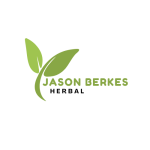Herbalism encompasses a vast vocabulary that can seem daunting to newcomers. Understanding the terminology is essential to navigating the realm of herbal medicine effectively. This comprehensive guide defines key terms, clarifying the language of herbalism to empower your journey toward holistic wellness.
Herbal Preparations
- Infusion: Steeping dried or fresh herbs in hot water to release oils and flavors.
- Decoction: Boiling herbs in water to extract bioactive compounds.
- Tincture: Concentrated herbal extract in a solvent like alcohol or glycerin.
- Salve: Topical blend of herbs and oils for skin application.
- Elixir: Sweetened, alcoholic herbal extract.
Herbal Actions
- Adaptogen: Herbs balancing physiological response (e.g., ashwagandha).
- Antioxidant: Herbs protecting against oxidative stress (e.g., green tea).
- Anti-inflammatory: Herbs reducing inflammation (e.g., turmeric).
- Antimicrobial: Herbs combating pathogens (e.g., echinacea).
- Nervine: Herbs calming the nervous system (e.g., passionflower).
Herbal Energetics
- Cooling: Herbs reducing heat and inflammation (e.g., peppermint).
- Warming: Herbs stimulating circulation and metabolism (e.g., ginger).
- Drying: Herbs absorbing moisture and reducing inflammation (e.g., sage).
- Moistening: Herbs hydrating tissues (e.g., marshmallow root).
Herbal Safety and Precautions
- Contraindication: Conditions or medications interacting adversely with herbs.
- Interactions: Potential conflicts between herbs and pharmaceuticals.
- Allergic reactions: Sensitivities or intolerances to specific herbs.
- Dosage and toxicity: Safe consumption levels.
Holistic Principles
- Holism: Treating the individual, not just symptoms.
- Vitalism: Honoring the body’s innate healing potential.
- Energetics: Considering herbal properties and interactions.
- Synergism: Combining herbs for enhanced effects.
Traditional Herbalism Terms
- Ayurveda: Ancient Indian medicine emphasizing plant-based remedies.
- Traditional Chinese Medicine (TCM): Combining herbalism with acupuncture.
- Unani Medicine: Greek origins, focusing on balancing bodily humors.
- Folk Herbalism: Regional practices employing locally foraged plants.
Modern Herbalism Terminology
- Phytotherapy: Scientifically backed herbal medicine.
- Phytopharmacology: Studying plant compounds’ pharmacological effects.
- Herbal nutraceuticals: Blending herbs with nutrients.
- Personalized herbal medicine: Tailoring treatments to genetic profiles.
Resources for Further Learning
- Herbalist training programs
- Online courses and webinars
- Herbal medicine books and journals
- Professional herbalist associations
Conclusion
Deciphering herbal terminology empowers individuals to navigate the realm of herbal medicine effectively, fostering a deeper connection with nature and holistic wellness. Embrace this knowledge, and unlock the ancient wisdom of herbalism.


